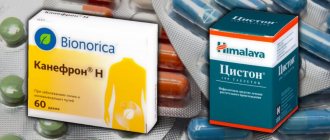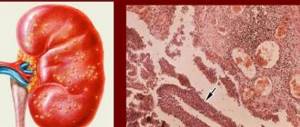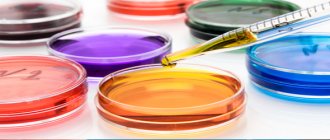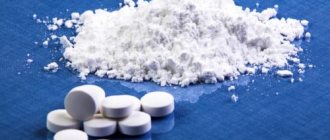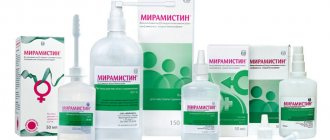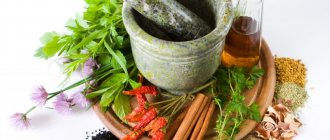Doctors do not agree on drinking coffee for bladder inflammation. Some believe that the energy drink worsens the patient's condition, while others argue that small amounts of caffeine do not affect the patient's health.
Doctors do not agree on drinking coffee for bladder inflammation.
Diet for cystitis
The effects of foods on the bladder have long been studied. Depending on nutrition, the symptoms of the disease weaken or intensify. Diet can affect the duration of treatment.
What to give up
If you have cystitis, you should exclude from your diet all foods that irritate the mucous membranes.
- Alcoholic drinks, including beer and low-alcohol drinks.
- Dishes high in sugar and sugar substitutes.
- Pickles, spices (including hot seasonings for dishes, sauces, peppers).
- Onions, especially leeks.
- Garlic.
- Chocolate.
- Nuts.
- Carbonated drinks.
It is known that caffeine also irritates the mucous membranes of the genitourinary system, increasing urination, so its intake in case of cystitis should be limited, and in case of a complicated course of the disease, it should be completely eliminated.
What is possible
A proper diet for cystitis involves taking the following types of foods.
- Fermented milk products that promote stool formation.
- Lingonberry and cranberry fruit drinks and juices (with caution so as not to damage the stomach).
- Boiled fish.
- Porridge, especially oatmeal. Porridges are prepared without fat and seasonings.
- Potato dishes with the addition of carrots and beets.
- More than 2 liters of water per day. In addition to water, you can drink fruit drinks and not very sweet compotes. Strong tea is not advisable. It’s also better not to drink juice (with the exception of tomato juice). Rosehip decoction without sugar is perfect.
The question arises, why don’t urologists recommend their patients drink coffee? This drink contains caffeine, which speeds up metabolic processes in the body. This activation of all functions also applies to the genitourinary system; increased blood flow leads to activation of urination.
Coffee in small doses stimulates the nervous system. After a cup of strong coffee, a person feels a surge of energy, but if the dose of caffeine is exceeded, he has to run to the toilet more often.
An attentive reader may ask a legitimate question: what is the difference between drinking fruit drink and coffee, since both of these drinks make the patient “run” to the toilet? Why is fruit juice in large doses useful for cystitis, but natural coffee is not?
The fact is that coffee irritates the bladder mucosa, which does not contribute to recovery. Many painkillers lose their properties under the influence of caffeine. After drinking the pills and then drinking coffee, the patient does not receive any effect from the treatment.
Regularity of meals, without long breaks, is of great importance. It is advisable to maintain a daily routine, eating at the same hours.
What the patient needs to know
It is difficult to limit yourself in drinking coffee - it causes chemical dependence. If the acute phase has passed, the attending physician allows a relaxation in the diet and occasionally you can allow yourself to drink 1-2 cups. For cystitis, you need to choose varieties with the lowest caffeine content - this will compensate for the negative effect of consumption. The following factors influence its quantity in the finished product:
- Grain variety.
- Roasting method.
- Grinding size.
- Cooking method.
There are many types of coffee trees growing on the planet, but 3 types are of industrial importance: Liberica, Robusta and Arabica. They, in terms of dry matter, contain 1.2-1.5%, 1.8-3%, 0.6-1.2% natural alkaloid, respectively. In unprocessed green coffee, its content ranges from 0.7 to 2.5%.
| Caffeine content in beans, ascending | |
| Variety | Caffeine, mg |
| Ethiopian "Mocha" | 160 |
| "Santos" | 160 |
| "Minas" | 163 |
| "Peru" | 170 |
| "Costa Rica" | 170 |
| "Mexican" | 170 |
| "Arabica" | 177 |
| "Nicaragua" | 180 |
| "Cameroon" | 180 |
| "Javanese Arabica" | 187 |
| "Salvador" | 187 |
| "Guatemala" | 187 |
| "Venezuela" | 192 |
| "Cuban" | 195 |
| Indian "Meleber" | 195 |
| "Colombia" | 195 |
| Haitian | 201 |
| Robusta, Congo | 325 |
| Robusta, Uganda | 325 |
When purchasing coffee beans, you should pay attention to the variety and country of origin. People suffering from cystitis should choose mild Arabica beans (including mocha) native to Indonesia, Latin America or Africa.
There is a widespread misconception that instant coffee contains less active ingredient. This is partly true - manufacturers can replace natural caffeine with synthetic one. The abundance of chemical additives that provide taste and aromatic properties does not always benefit the body weakened by the disease. Taken together, their effect on the bladder during cystitis is difficult to predict.
Caffeine for cystitis
The diuretic effect of coffee has been known for a long time, but this positive effect on inflammation is offset by the fact that caffeine has an irritating effect on the mucous membranes. Due to this, inflammation only intensifies, stimulating the growth of microorganisms in the bladder.
Therefore, under the influence of coffee, the symptoms of the disease only intensify.
- Burning and pain when urinating.
- Constant urge to go to the toilet.
- Pain when urinating, occurring due to irritation of the urethral mucosa.
- Retention of urine during urination due to swelling of the mucous membranes.
- The appearance of mucus and bloody discharge in the urine.
- Coffee neutralizes the effect of painkillers.
Coffee has many beneficial properties; it has a particularly positive effect on liver function, invigorates and improves mood. Therefore, the dilemma of whether you can drink coffee with cystitis is not so simple.
In global clinical practice today, it is generally accepted that patients with cystitis should temporarily stop drinking coffee. An exception is made only for hypotensive patients who take caffeinated drinks to increase their low blood pressure. For this category of people, you can drink coffee even with acute cystitis, but no more than two cups per day.
Why is coffee dangerous?
The invigorating effect of coffee is due to the presence of caffeine in it, a psychostimulant alkaloid that causes addiction. It affects the body as follows: accelerates the pulse, increases blood pressure, dilates blood vessels, affects the heart, stimulates and increases urination.
For a patient with cystitis, it is the latter effect that is dangerous. If you have a bladder infection, drinking plenty of fluids is recommended, but drinking coffee will only make it worse. The caffeine it contains irritates the mucous membranes, which are under the influence of pathogenic flora. The healing process is delayed, and urination becomes even more painful.
A coffee fan, faced with this insidious disease, often wonders: is it possible to drink coffee if you have cystitis? For a quick cure, you should take medications prescribed by your doctor and follow a diet - in this case, the cure will come faster.
Coffee is on the list of prohibited foods due to the caffeine it contains. If it is difficult to completely give up coffee (as, for example, for hypotensive people), then it is allowed to drink no more than 1 cup per day with a volume of 50-100 ml during the non-acute phase. To prepare the drink, it is preferable to choose varieties with the lowest content of natural alkaloid; do not prepare them in a Turk or coffee machine.
Preventive rules
Patients who have had cystitis know how painful and insidious this disease is, and how difficult it is to treat. In this light, it becomes clear why urologists have developed a number of recommendations for the prevention of urological diseases. Cystitis is extremely difficult to treat, but preventing its occurrence is easy. You only need to follow a few rules of prevention.
- Temper yourself and avoid hypothermia. With a weakened immune system, it is much easier to get sick, especially in the cool season. It is fundamentally important for women to keep their feet warm.
- Avoid synthetic clothing, especially avoid synthetic underwear.
- Tight underwear also contributes to illness - it interferes with normal blood flow and air exchange in the internal organs.
- After sexual intercourse, be sure to take a shower - the internal microflora is different for all people. The microflora with which one sexual partner lives normally can provoke the development of the disease in another person.
- You should have a permanent sexual partner - this is not only moral, but also good for health, as it reduces the likelihood of contracting sexually transmitted infections, which often lead to cystitis.
- Use condoms in private life, especially for anal sex.
- When you feel the urge to urinate, try to immediately visit the toilet - stagnation of urine increases the number of pathogenic bacteria in the bladder.
- Use only natural intimate hygiene products. Fragrances in many detergents negatively affect the internal microflora of the genitourinary system.
- Try not to use tampons, give preference to pads. If a woman has ever had cystitis, she is strictly prohibited from using tampons.
- When using toilet paper and cleaning yourself, use a motion from the vagina towards the anus. The opposite movement is strictly prohibited - you can carry E. coli from the rectum to the genitourinary organs.
- Do not combine traditional and anal sex - this will lead to the development of cystitis.
- When planning a family, future parents must undergo a complete diagnosis to identify chronic diseases.
- Eat a balanced diet.
- Visit your gynecologist or urologist annually.
- Temper yourself, take moderate physical activity regularly.
Whether it is possible to drink coffee with cystitis is ultimately up to the patient to decide. Doctors recommend temporarily stopping taking this invigorating drink or drinking no more than 2 cups of coffee per day. It is advisable to add milk or cream to the cup to reduce the amount of calcium removed from the body.
The situation with coffee is approximately the same as with any other product: in small quantities it is useful, but excessive consumption is harmful to the body. It is important for patients with cystitis to observe moderation, adhere to a healthy diet and simple hygiene rules.
What to do with sauces and seasonings
Every cook who loves to cook wants others to like his dish.
For this purpose, he uses sauces and seasonings that make food much tastier. But if you have cystitis, it is not recommended to consume anything that only intensifies the inflammatory process. When preparing mayonnaise, products that are unacceptable for cystitis are used: preservatives, vegetable oil and eggs. Accordingly, those who like to eat food with the addition of sauces and spices should curb their appetite.
You also need to be careful with salt. You should consume no more than 15 grams (a tablespoon) per day. This norm is intended for healthy kidneys. But it must be calculated when cooking products that already contain sodium chloride. In principle, the given amount of salt is enough for a day so as not to cause harm to health.
Types of coffee drinks
Coffee consumed during bladder inflammation should not contain any foreign impurities. However, due to the fact that it is caffeine that has an irritating effect on the walls of the organ, preference should be given to drinks containing a small amount of this substance.
- Is it possible to drink alcohol with pyelonephritis?
So, people suffering from cystitis can drink a cup of espresso, ristretto or decaffeinated coffee. It is advisable to drink the drink with milk - it not only helps with this disease, but also neutralizes the effect of caffeine.
You should drink coffee with a large volume of drinking water (a cup of espresso should be washed down with three hundred milliliters of liquid).
Advice. Arabica coffee beans contain less caffeine than Robusta coffee beans.
The pattern of drinking the drink is quite simple. The patient should drink water, take medications prescribed by the doctor, wait thirty minutes and start enjoying the drink with clean water. After half an hour, you should drink more water - this will minimize the harm caused to the body by caffeine (naturally, to ensure the ability to drink an invigorating drink without deteriorating your general well-being).
Attention! Coffee prepared in Turkish is prohibited for cystitis. This prohibition is explained by its too long interaction with water and, accordingly, the transition of most of the caffeine to the latter.
You should not drink instant coffee if you have cystitis. It contains dyes, emulsifiers, odor and taste enhancers, stabilizers that can significantly harm the body.
It is not recommended to add alcohol, spices and sugar to the drink - they can increase irritation of the affected organ mucosa.

